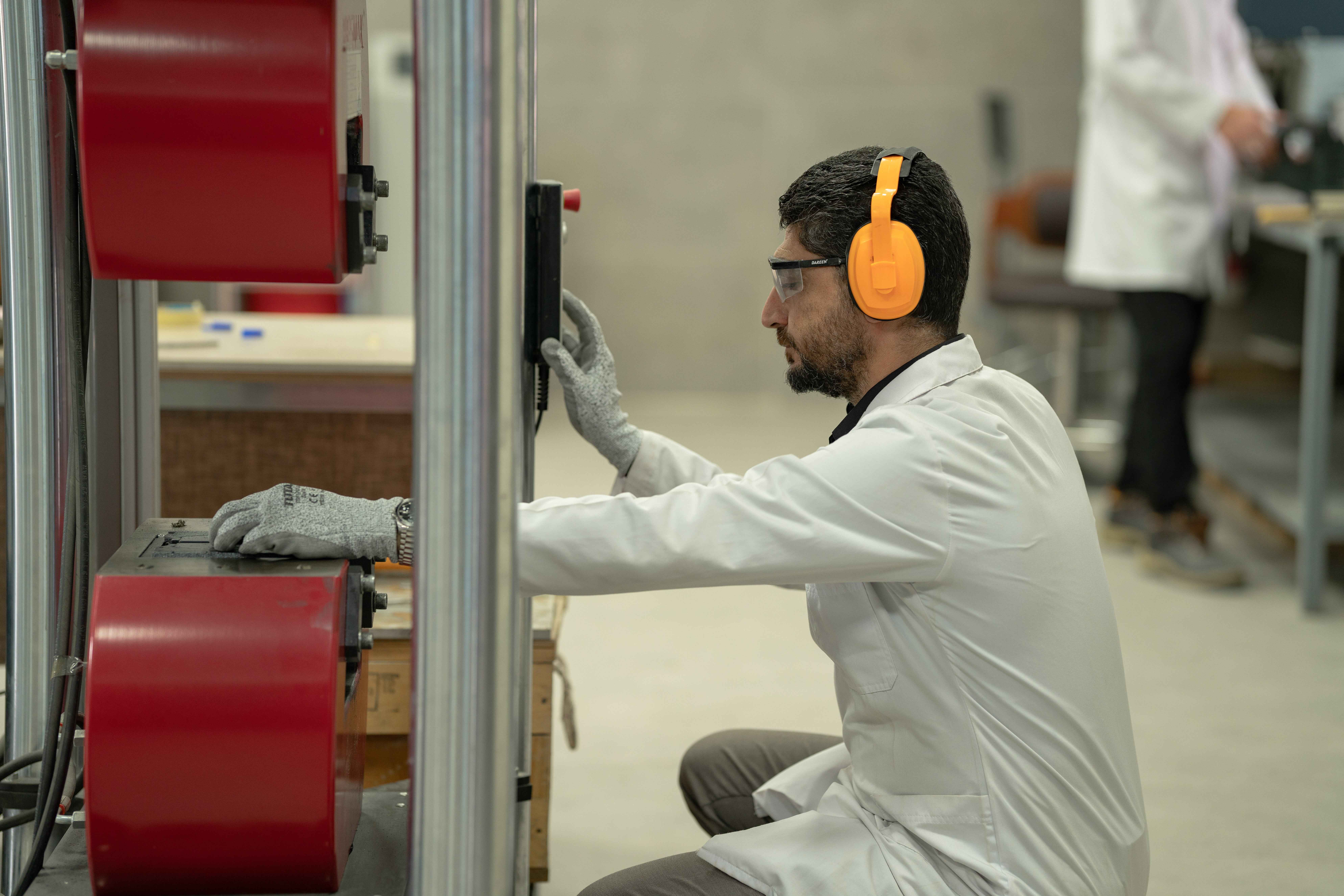

Construction Material Testing
With continuously changing a technology and materials revolution that trying to promise lower construction costs and solutions to problems; the development of Lab techniques is very necessary to open up the enormous challenge of updating. Construction Materials Testing (CMT)is also a regulatory requirement for most large-scale projects.
The testing process is important because it allows inspectors and builders to identify faults before an actual stress test, where personal and environmental safety is at risk. Materials testing helps avoid expensive repair or renovation work to correct faults and mitigate risks to other people and property. Various inspections and proof of materials quality are also required by law depending on the location and type of structure.
Our construction laboratory tests form the backbone of most important imported construction materials from neighboring countries. Most of the material properties we (or the client) need can be obtained through performing a combination of the tests listed below.
In order to obtain accurate material information, it is important to obtain representative samples of the materials being tested which done here by a professional well-trained inspectors’ team. In our lab rather than that we help for testing & inspection; certification & development are done for CMT using many different methods and updated standards such as IQS, ASTM, BS & ISO.
A highly qualified team leads the lab & provide the best inspection services &testing required for imported construction materials. We believe in serving products with quality, accuracy & assurance using the best scientific methods.
We constantly work harder to improve the overall quality of the construction materials striving to advance the client’s knowledge & their abilities which affects understanding material properties that can help make the best design decisions.
AS a quality control lab we understand that high accuracy and precision data required advanced instruments in addition to the professional staff and controlled environment & always be updated, as an example, we provide (Vacuum apparatus) to determine water absorption for ceramic tiles which depend on updated 10545-03 2nd edition at 2018 as a first lab in the country.
Our laboratory offers more than just test results; our services are technical support, recommendation & solution for our clients and their suppliers. We guarantee the data you receive is always accurate and objective.
Testing of construction materials includes physical, chemical & verifying quantities which are necessary as apart of a quality control system to make sure that these materials comply with required specifications & standards.
In below list of some basic tests and analyses can be achieved in our lab:
- Gypsum and Gypsum Products:
- Chemical Analysis using two ways: manual method using reagents & XRF method.
- Physical tests: Fineness, M.O.R, compressive strength &setting time.
- Portland Cement types:
- Chemical Analysis: SiO2 Al2O3 Fe2O3 MgO L.O.I C3A L.S.F SO3.
- Physical Analysis Fineness, Soundness, Setting Time (initial, final), compressive strength (3 days, 7 days)
- Masonry & Bricks (Veneer Shale brick, Clay brick, Face brick, Hollow brick, Glass brick, Fire brick, Refractory bricks, Calcium Silicate Brick):
Cold Crushing, Water Absorption, Compressive Strength & Efflorescence Tests.
- Natural Dimension Stones (Granite, Limestone Group, Marble Group & Sandstone group)
Water Absorption, Bulk Density, M.O.R & Compressive Strength.
- Autoclaved Aerated Concrete (AAC):
Dimension Tolerance, Dry Bulk Density, Compressive Strength & Capillary Absorption tests.
- Bitumen-Saturated Felts and Woven Fabrics for Roofing and Waterproofing
Physical properties (mass, width, cracks, length), pliability, heat on loss, heat stability & tensile strength test.
- Ceramic Tiles:
Water absorption using two methods (boiling & vacuum) breaking strength, modulus of rupture & chemical test.
- Reinforcement Steel bars (plain & ribbed)
Physical Properties: (Mass per unit & Diameter tolerance).
Mechanical Properties: Tensile & Yield Strength, Elongation & bending tests.
Chemical Composition.
- Founded
- 2017
- Employees
- 10
